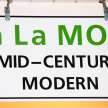Daddy's Girl
A Review of Ghislaine Maxwell - Epstein's Shadow (Documentary)

Ghislaine Maxwell: Epstein’s Shadow first aired on the streaming channel Peacock on June 24, 2021. The three-part series attempts to explain how the favored child of media mogul Robert Maxwell fell so far from grace as to end up a vain middle-aged woman whose alleged function from the early 1990s was to procure under-aged girls for financier Jeffrey Epstein and his global cronies.
Jeffrey Epstein is now dead, the official story being that he committed suicide in his cell at the Brooklyn Metropolitan Correctional Center on August 10, 2019. Ghislaine Maxwell resides in the women's wing of the same federal prison, having been convicted of the sex trafficking of a minor and four additional criminal charges in December 2021.
The documentary is expertly produced and fascinating to watch. It takes the viewer through Ghislaine’s childhood, the heady days at Oxford University, her glittery years as a social butterfly whose connections facilitated Jeffrey Epstein’s entrée into high society, and her odd attempt to refashion herself as a global humanitarian following the mysterious death of her father in November 1991. We see the photogenic Ghislaine cavorting across the years with political figures and celebrities ranging from Bill Clinton to Mick Jagger, always smiling or laughing and impeccably dressed and glowing.
Yet there is a peculiar emptiness at the heart of this story that is infuriating, sad, and bewildering all at once. The women who step forward to provide public account of how Maxwell and others in this sordid circle casually ruined lives are intensely moving. Many of those interviewed are astute about how the noxious stew of sociopathology, power, and money enabled a certain class of men to elude censure, let alone justice. For her part, Maxwell provides no insights (except in flashbacks on matters unrelated to her crimes). As the story progresses, she seems to disappear from scrutiny in a haze of self-indulgence, expensive clothes, and parties. The documentary clearly implies that she is guilty, and the narrative is convincing.
Despite all this, it is difficult to ignore a nagging sense that Ghislaine Maxwell is also a victim. This does not in any way exonerate her. She is a willful casualty of her own myopic narcissism and dependence upon rich men. She took her revenge not by fighting the gilded prison she grew up in, but by enticing others into it. Yet the Ghislaine Maxwell presented here is a victim, seemingly caught from childhood in a web of predatory males who warped her identity and moral compass. In the documentary, the writer Anna Pasternak repeatedly uses the term “daddy’s girl” in reference to Maxwell, trying to elucidate how the overwhelming influence of the father ruined the young girl. The cliche fits the case. The father’s attention seems entirely too much, somehow disturbing, as in a gothic fairy tale. His overindulgence separates his youngest child from her mother and siblings, sets her up as the special one whose position is insecurely moored by charm and youth. Later in the story, he adroitly uses her coquettish glamour to enable his own schemes and predations.
Daddy’s girl is efficient shorthand for Ghislaine Maxwell and the documentary is indifferent to the question of her mother, though I expect she learned as much or more from her than she did from her father. Elisabeth Maxwell appears in the series briefly as the cowed and weirdly disengaged wife of a mad genius. In real-life, she was a respected Holocaust historian and the founder of the Holocaust and Genocide Studies journal. She married Robert Maxwell, who had survived a brutal childhood only to lose most of his family in the Holocaust, in 1945. Her memoir, A Mind of My Own: My Life with Robert Maxwell, published in 1994, is an exasperating account of a talented but damaged woman seeking to make some sense of her indestructible (and to the reader, inexplicable) commitment to a deeply flawed man. Notice, too, how the titles of both the documentary and the memoir position each woman in relation to a man. Neither Ghislaine Maxwell nor her mother signify without mention of the men whose demonic personalities propel these stories.
Mrs. Maxwell’s testimony suggests it would have been hard for any child to breathe amidst the suffocating intensity of the parents. In this light, Ghislaine’s purported comment, at age 3, “Mummy, I exist,” seems the skeleton key to almost everything of note that followed. Daddy’s girl though she was, Ghislaine seems to have learned from her mother the most enduring lessons of all: powerful men must be deferred to and the only way to ensure their presence and protection is to appease them at all costs. Make yourself small, draw back, and ensure that his desires are sated, regardless of the damage done to anyone else. Memories and reflection are only a hindrance in this destructive game; better to live in the blank spotlight of minor fame and not to think too much about the difficult things.
None of this pain excuses the crimes that Ghislaine Maxwell committed. It does not minimize the pain of her accusers, who had to work very hard and for far too long to find justice. What it does suggest is that Maxwell perfected the strange alchemy whereby a victim becomes a villain and turns against the ones she could and should have protected. This documentary will be a lasting artifact of the #MeToo era in that, through the lens of Ghislaine Maxwell’s story, it illuminates how pain can cascade through generations of women, while a certain class of men floats obliviously above the wreckage.
About the Creator
The GenX Joint
My name is Amy Fletcher. My writing focuses on movies, art, photography, pop culture, and tech. I am fascinated by the 1960s/70s and all things tech-futuristic.






Comments
There are no comments for this story
Be the first to respond and start the conversation.